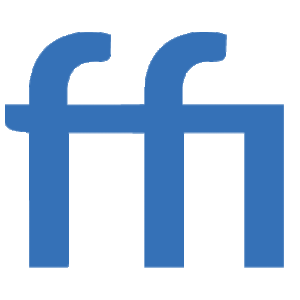Preparing for EU Joint Clinical Assessment 2025: Leveraging Gen AI Technology to Navigate the New Era in Health Technology Assessment

As we edge closer to 2025, the pharmaceutical landscape in Europe is poised for a transformative change with the implementation of the new EU Health Technology Assessment (HTA) regulations. This pivotal move, aimed at harmonizing HTA across European nations, is set to redefine how new pharmaceuticals are evaluated, approved, and brought to market.
Understanding the EU HTA regulations’ Impact
The EU HTA regulations are a response to the diverse and often fragmented assessment methodologies across Europe. This diversity has led to inconsistencies in healthcare quality and access, a challenge that the regulations seek to address. As part of these new regulations a Joint Clinical Assessment (JCA) will be required by 2025 for all oncological drugs and advanced therapy medicinal products (ATMPs), with orphan drugs following in 2028, and full applicability to all medicinal products by 2030 [1]. This shift signifies a move towards more robust, consistent evidence-based decision-making at both national and European levels.
Challenges for Pharma Companies
The transition to a standardized JCA framework, while beneficial in the long run, presents immediate challenges for pharmaceutical companies. The requirement for comprehensive dossiers, to enable medical and economic evaluations and in some cases evaluation of ethical, social, legal, patient and public involvement aspects, demands significant resources. A study by Werner et al. (2023) highlights the increased workload for the companies under the new regulations, particularly in terms of safety endpoint and subgroup analysis. The preparation of such dossiers requires enormous resources from the companies, taking on average 12 months, and causing costs of up to 1,000,000 EUR [2]. This is compounded by the need to align with diverse national healthcare needs and varying PICO (Population, Intervention, Comparator, Outcomes) requirements across member states.

Responding to EU JCA Requirements
In response to these new regulations, pharmaceutical companies must adapt by preparing dossiers that meet the common standards set by the EUnetHTA21 submission dossier guidance. This involves a meticulous compilation of data and evidence, including detailed clinical trial results, economic models, and comprehensive analyses of safety and efficacy. The extensiveness of these dossiers, as indicated by the recent changes in German HTA dossier requirements, suggests a significant increase in the scope and depth of information required [2]. Meanwhile, the timeframe available to the companies to prepare and submit the dossiers will become shorter [1].
Enhancing Dossier Preparation with Advanced Technology: Generative AI (Gen AI)
Recognizing the challenges posed by the new EU JCA framework, FFI-ventures offers a sophisticated Gen AI solution to aid pharmaceutical companies in this transition: JCA dossier builder. Leveraging Gen AI technology, JCA dossier builder is designed to efficiently compile and analyze the extensive data required for EU JCA submissions. This approach not only streamlines the process but also aligns with the emphasis on high-quality, comprehensive assessments. Our solution is tailored to meet the specific needs of each product, ensuring that all relevant data and evidence are included to facilitate the assessment process. JCA dossier builder is crucial in navigating the complexities of the new HTA landscape, enabling companies to focus on innovation and patient care while efficiently meeting HTA requirements.

Key Features of JCA dossier builder:
Precision and Adaptability: Our Gen AI technology is finely tuned to handle the specific requirements of EUnetHTA21 submission dossier guidance for EU JCA, ensuring precision and adaptability to changing regulations.
Comprehensive Data Integration: We offer seamless integration with various data sources, ensuring comprehensive and up-to-date information for dossier compilation.
Resource Efficiency: Our solution significantly reduces the time and financial resources required for dossier preparation, addressing one of the major challenges highlighted in the EU JCA framework.
Looking ahead, the EU HTA regulations mark a significant step towards more equitable and efficient healthcare across Europe. For pharmaceutical companies, this change is not just about meeting new standards but leveraging them for strategic advantage. At FFI-ventures we are eager to be at the forefront of this progressive change in the European healthcare landscape. We are committed to working alongside industry leaders, contributing our expertise and technology to navigate this new landscape together. By joining forces, we can ensure timely access to effective healthcare solutions, ultimately benefiting patients across Europe.
Connect with us to explore how to leverage our Gen AI innovative solution JCA dossier builder for your EU JCA submission readiness.
References:
[1] EUnetHTA – Joint Clinical Assessments
[2] Werner, S. (2023). Shaping a suitable EU HTA dossier template: why the German template is not fit for purpose. The European Journal of Health Economics. SpringerLink
